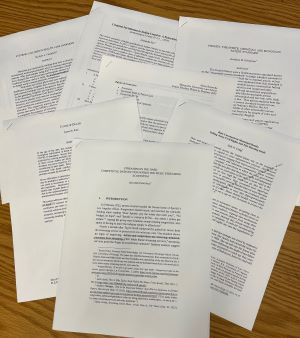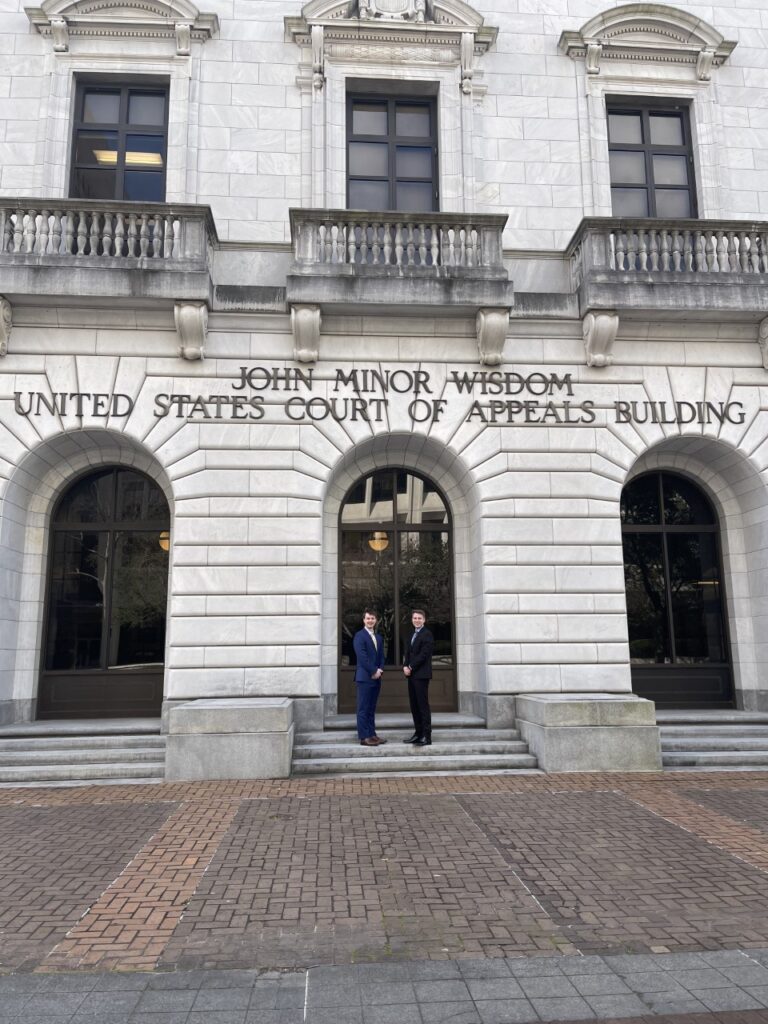Marquette Law Students Contribute to Regional Study of Chloride Pollution
Chloride pollution of surface water and groundwater is an intractable problem. On one hand, sodium chloride (salt) is an important component of winter maintenance efforts that keep roads and other traveled surfaces free of snow and ice. On the other hand, many scientific studies have examined the potential risks to human health and natural resources associated with excess chloride in the environment, such as deteriorated ambient water quality, toxicity to aquatic and benthic organisms, adverse effects on vegetation, and even impacts to drinking water supplies.
Yet little of that scientific work has been directed toward developing legal and policy strategies to address the chloride issue. On the contrary, overapplication of salt has historically been the “safe strategy” to avoid liability in slip-and-fall cases in the absence of any coordinated policy approach.
To complicate matters, chloride is extremely difficult to remove using traditional water and wastewater treatment approaches, so use reduction appears to be the only effective management strategy. Given the public safety concerns, though, that approach is complex to say the least and must involve consideration of legal, environmental, and safety issues, among others.
Building on the proposed framework for the Southeastern Wisconsin Regional Planning Commission’s comprehensive Chloride Impact Study for the Southeastern Wisconsin Region, and working closely with Commission staff, Marquette Law School students Margaux Serrano (L ’24) and, prior to her graduation, Ivy Becker (L ’23) led the effort to develop a report examining a menu of responsive legal and policy options available to decision-makers in the Region. These include limiting slip-and-fall liability, relying on direct regulatory authority such as the Clean Water Act or corresponding state regulations and municipal ordinances, disseminating relevant information to stakeholders and the public, using alternatives to chloride where feasible, leveraging new policy strategies such as water quality trading, investigating integrated watershed management across jurisdictions, and leveraging economic measures and assistance.
Without question, these policy options will not all be appropriate in every context. After evaluating community-specific considerations, policy makers may choose one or more to reduce the problem of chloride transport to surface waters and groundwater. The report is not intended to suggest the elimination of chloride use in its most visible forms (winter maintenance and water softeners). Rather, it suggests that such use be optimized. Optimization carries “triple bottom line” benefits for the environment (in chloride reductions); for the economy (in cost savings on chloride expenditures and personnel hours); and for society (in improved public health).
A draft of the report is available here on the Commission’s Chloride Impact Study website.


